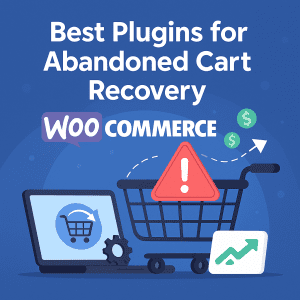 Canada is an excellent place to start a business. Ranked 10th largest in the world in nominal GDP, this economy is solid, robust and thriving, with plenty of opportunities. Key sectors are natural resources, manufacturing, finance, technology, and agriculture. Tourism, entertainment, and sustainability are also some of the strong industries.
Canada is an excellent place to start a business. Ranked 10th largest in the world in nominal GDP, this economy is solid, robust and thriving, with plenty of opportunities. Key sectors are natural resources, manufacturing, finance, technology, and agriculture. Tourism, entertainment, and sustainability are also some of the strong industries.
Many Canadians are carving out their niches, cutting away from the mainstream job market to pursue personal visions. Wherever you are in your entrepreneurial journey-from your first-time entrepreneurial adventure, to seasoned entrepreneurship, innovation, and entrepreneurship-rich ecosystems abound across the country.
But, of course, starting a business is no bed of roses either. All those steps, from coming up with your idea to finding funding, setting up a professional website, dealing with regulations-actually, all the process-isn't easy to lose one's way in. Don't worry! This is a step-by-step guide that will, of course, make the whole journey smooth and enjoyable.
This 10-step guide will walk you through all that you need to understand how to start a business in Canada. We will cover everything from doing your market research to developing a robust online presence with professional website development in Canada through coming up with a solid business plan and meeting the legal requirements. More, we'll talk about how to buy .CA Domain Name and find the most secure web hosting in Canada for your business. So here's to it, then! Brew your favorite coffee, curl up in a comfortable spot, and let's start this exciting journey into the world of Canadian business today!
Understanding the Canadian market
You will want to devote some time to research into the Canadian marketplace so you can identify some opportunities and holes. Then, narrow it down to a sector or industry that you want to enter and take some time analyzing potential competitors.
Develop a deep understanding of consumer behavior and preferences in Canada. For example, since COVID-19 entered the world's life, a greater number of consumers buy products online than offline than before this pandemic. This knowledge will enable you to get deeper knowledge about the Canadians, thus arranging a proper business model.
Prepare Yourself: Align Your Thoughts Before Starting
Publications like to quote overnight sensations because it's a great story. But it doesn't usually play out that way; they don't get to see the years of dreaming, building, and positioning before a big public launch. So keep your eyes on your business journey and do not compare yourself to others for success.
Consistency is King
New entrepreneurs tend to feed off of their motivation at first but then get frustrated when that motivation fades. As a result, it becomes imperative for one to create habits and routines that allow him or her to power through when motivation retreats.
Now Let's Get Moving
Most business owners dive in head-first without knowing what is ahead of them. They make up things as they go along. On the other end, you have business owners who are stuck in analysis paralysis and never start. Maybe you're a little of both-and that's exactly where you want to be. The most powerful way to achieve any business or personal aim is to write down every single step it takes to get there. Then arrange those steps in terms of what has to happen first. Some will take just a few minutes, while others will take hours. The idea is to always take the next step.
With the right approach, you can grow a loyal customer base faster than you ever thought.
Ready? Great! Here we go.
Find a business idea
First, for sustainable commercial success, you need to find a business idea that not only must be feasible but also one you want to do.
If you have a list of business ideas that are short, dig a little deeper by carrying out a little research. Look at brands that are selling what you hope to sell. Find out how their consumers engage with them while looking at overall demand based on public sales or growth data.
Doing so will excite you to come up with your business ideas. Armed with your market and competitor research, you're ready to incubate them by considering the following questions:
- What am I passionate about?
- What are specific skills and experiences that I bring on board?
- What subject are you most passionate about?
- Can I realistically sell or promote the product or services within my potential niche?
- What's my unique spin on well-trodden business ideas or concepts?
- What are the gaps I can fill in my prospective niche or market?
Ask yourself these, and eventually you will land on some form of business idea that has the potential to scale while keeping you engaged and inspired in the long term.
Registering Your Business
Once you have a business plan in place, it is time to register your business. This process varies depending on your choice of business structure and the province in which you will operate.
Selecting a Business Name
Choose a unique and meaningful name of your business. It should represent your brand and have the ability to stick in someone's mind. Additionally, verify whether it is not used by another firm, that is done by checking the Canadian Intellectual Property Office (CIPO).
Business Registration Process
- Federal or Provincial Registration: Whether one wants to register federally or in the province depends on the target market and the structure of the business.
- Required Permits: Licensing or permits according to the industry a business is running will vary. The specific requirements can be confirmed through the business portal of the relevant province.
Domain Registration
Once you set up your business, you should register a .CA domain name. This will help in confirming your presence and trustworthiness in Canada among consumers.
Trademark Protection
Protect your brand by registering a trademark that guards your business's intellectual property.
SEO Keywords: Register business in Canada, business registration process, .CA domain name registration, trademark Canada.
Choose a name for your business
You probably have a few ideas that pop into your head, but here are some things to take into account before finalizing on a business name.
- Is it obvious to your customers what you are selling?
- Does it project well for your business?
- Is it easy to pronounce, spell, and remember?
- Unique enough that potential problems will not crop up?
Once you have selected a business name, you will then see if the name is available. If someone else has already used the name somewhere, then you cannot legally use it. Legality aside, you would anyway want a unique name in order to avoid confusion.
You can begin by looking up a desired business name online, but dig deeper than that. Search for example, Canada's Business Registries and Nuans as well as provincial and territorial databases.
Register your new business with the government
You may or may not need to file the name of your start-up. This again depends on the form of organization that you would like to operate under. If you are a freelancer, for instance, you will have no need to file since you technically have no employees except yourself, who is doing business under your legal name. If you are interested in filing a partnership or even corporation, you will be required to file the name of your business, and you would probably want to file a trademark.
Some of the additional registration requirements will once again be dependent on the type of business structure you intend to use, and where you plan to set up shop. The website for the Government of Canada offers links to start-up business support for each province/territory.
Get funding, explore finance options
You would probably need money to launch your business. There are so many types of funding, depending on the kind of business you want to start.
You can use your personal funds or savings to get up and running with your plan to start a strictly online business and scale up. That way, you would have complete control of your decisions to grow the business on your own terms.
But it's nice to state that if your business folds or cannot achieve profit for some reasons, you're the one paying off the debt.
Other funding forms that relate to the business are as follows:
- Crowdfunding: You might utilize particular platforms for crowdfunding, and you might encourage a lot of people to donate towards your business with some incentive or equity in return. This has turned out to be a very efficient form of fundraising within Angel Investors Blue Feathers.
- Line of credit: Exactly like opening a personal line of credit, you can open a line of business credit. The term's limits and interest rates will depend on the kind of business you will operate and other factors such as your financial history and credit rating.
- Applying for a grant : Another way to get seed funding for your business is by getting a grant. Depending on the basis upon which your business mission is based-on creating a better community or inspiring innovation, you qualify for decent grant money from the federal government.
- Present your business plan to investors: Research investors in your niche and pitch to them as a way of getting funding as well as professional backing and advice. Of course, this is definitely one avenue worth pursuing if you need startup capital as well as help with the activities of launching and developing your business.
Get business insurance
In addition to a business account, you may want to open up a business insurance account. Otherwise, you will end up paying a huge bill if some unseen problems, damages, or disputes arise.
Even as a small business, you will need to cover yourself with the right kind of insurance to protect yourself.
However, if your business involves providing a service rather than selling tangible goods, you should also consider professional liability cover just in case of consumer-facing mistakes you might have in the future. As your business grows, you might also want to consider employment practices liability insurance; this type of cover protects you in case an employee makes any claim or complaint that may arise in conjunction with your business.
Note that once you begin hiring employees, or if ever at some point you will, then you have to get registered and pay for provincially-mandated workers' compensation insurance.
Build your website
You'll be ready to construct your website and breathe life into your business online. Your website or your online store will be the digital home of your entire business — so get it right in terms of design and functionality.
If you're interested in launching a website for your business, here are some handpicked resources to get you going:
Importance of a Website
A well-designed website helps establish credibility and allows customers to learn about your products or services 24/7. Furthermore, it acts as a platform for marketing and communication strategies.
Choosing the Right Domain Name
Choose a name with significant meaning to your business and ease of remembrance. Buying a .CA domain name strengthens your brand's equity and makes you show up more easily to the consumers in local searches.
Options for Developing a Website
You can make a website yourself free of cost or of any cost using various platforms available such as WordPress, Wix, or Shopify. Or if you want your website to be exactly a custom design for your brand then consider hiring from a professional website development Canada web development company.
- Local SEO Optimization: Optimize your website for search engines with any relevance to locals. Use relevant keywords and post fresh content on your site.
- User-Friendly Design: Your website should have easy navigation, be mobile friendly, and well optimized and fast speeds.
- Secure Web Hosting : You can choose secure web hosting Canada services for your website to prevent data breaches and uptime issues. Good hosting providers thus ensure you get speedy hosting, security, and customer support, which all help shape your internet presence.
- Content : Make use of good content quality that would fulfill the requirements of the customer and depicts expertise in your niche. Blog or news update on your website is one method to boost its SEO performance.
- SEO Keywords: Professional website development in Canada, Secure web hosting in Canada, Website Design Tips.
Setting Up Your Operations
Once you have ensured your online presence, you can then enter the operational elements of your business. Your operations should be streamlined, efficient and scalable as your business expands.
Location, Location, Location
Select a physical location according to your type of business and customers' type. It should be easily accessible and serves the purposes of operations. For an online business with no physical existence, efficiency in the logistics and the handling of the inventory must be assured.
Hiring Employees
Deliberate on Staffing Carefully. Attract talent through good corporate culture and fair packages. Make sure you adhere to labour laws and regulations of Canada relating to hiring and employment.
- Job descriptions: You describe your roles and responsibilities so that you get the right candidates for your employment.
- Training programs: Training is done in bringing in staff efficiently and growing with the employee.
Implementing Technology and Tools
Use management software in CRM, project management, and financial tracking so streamline your operations. Processes should be automated wherever possible for time and error savings.
Inventory Management
If one runs a product-based business, one should look into inventory management solutions that could track the level of the stock, its sales, and delivery. He should avoid either shortages or excess stock.
Customer Support
Create an excellent customer service system to respond promptly to queries or complaints. An ideal customer service system eventually attracts repeat business and positive word-of-mouth.
Marketing Your Business
Good marketing strategies will connect you to your targeted customers and enable you to achieve the desired sales targets. Many approaches can be included in your comprehensive marketing plan.
Building Brand Identity
Your brand identity should be consistent across all mediums. These include your logo, color scheme, messages, and look overall. A good brand identity encourages the customer to recognize and spend even more time with your company.
Digital Marketing Strategies
- Social Media Marketing: Connect with your customers through Facebook, Instagram, and LinkedIn, and also build relationships and be able to promote your products.
- E-mail Marketing: Create a list of e-mails of your customers and also constantly contact them so that they remain interested. Use good content, special offers and promotions, and even updates.
- SEO: Ensure that your website is search engine optimized in the search engines. Use appropriate keywords including Professional Website Development Canada, and the others that are revealed by you while doing the market research.
Networking and Community Involvement
Attend local events, trade shows, and business networks to develop your networks and increase your footprint in that community. Networking with other businesses can also lead to new opportunities that may not have come your way otherwise.
Tracking Marketing Metrics
Follow the performance metrics in tracking the success of your marketing efforts. Use analytics tools to measure website traffic, conversion rates, and customer engagement. Monitor and change the strategies based on data-driven insights.
Content Marketing
Develop good content marketing strategies by putting blogs, videos, and podcasts that would talk to your targeted audience. Knowledge sharing not only attracts customers but also makes your business an industry leader.
Conclusion: Start Your Canadian Business Today!
Planning and Research A business in Canada needs careful planning to establish a successful business. All the resources available to an entrepreneur in Canada should be taken into consideration while following each step. Exploiting opportunities in the Canadian market will make it possible to have the right strategies so that a thriving business can be easily set up. Avail yourself of professionals in areas such as professional website development in Canada, domain registration, and securing funding.
The 10-step guide will help you launch your business here in Canada in no time. Start Your Canadian Business Today! and join the lively entrepreneurial community here in Canada!
This guide empowers the would-be entrepreneur to enter the business world with confidence and is also optimally "search engine optimized" by strategic SEO keywords. Adapt this guide further based on your specific niche and business vision to personalize your entrepreneurial endeavor!
FAQs
Question : What are the first steps to start a business in Canada?
Answer : The first steps include identifying a viable business idea, conducting market research to validate your concept, and developing a detailed business plan that outlines your goals, target market, and financial projections.
Question :How do I choose the right business structure in Canada?
Answer : In Canada, you can choose from several business structures, including sole proprietorship, partnership, corporation, or cooperative. Consider factors such as liability, tax implications, and your business goals. It's advisable to consult a legal or business professional to make the best choice for your situation.
Question : What permits and licenses do I need to start a business in Canada?
Answer : The permits and licenses required depend on your business type and province. Common requirements may include a business number, GST/HST registration, and specific industry-related licenses. Check with local, provincial, and federal authorities to ensure compliance with all regulations.
Question : How can I secure funding for my business in Canada?
Answer : Funding options include personal savings, loans from banks or credit unions, government grants and programs, venture capital, and angel investors. Explore government resources like the Canada Small Business Financing Program and local development agencies for additional support.
Question : What resources are available for new entrepreneurs in Canada?
Answer : Numerous resources exist, including the Canada Business Network, Business Development Bank of Canada (BDC), provincial business centers, and mentorship programs. Online courses, workshops, and networking events can also provide valuable information and support for new entrepreneurs.














